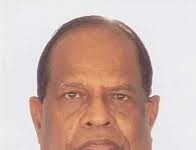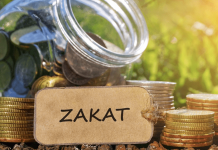Road traffic congestion is a problem that faces all of us, especially in the large cities and at certain peak times. It is a problem that has grown at an alarming rate as our lives have become increasingly dominated by the motor car. Sitting in a traffic jam is frustrating and time consuming. It adds considerably to the costs and the stress of modern living.
And it is not only the motorist that suffers. Congested streets make life less pleasant for pedestrians and increased traffic leads to more accidents. What is more, the inexorable growth of traffic has led to significant problems of pollution. Traffic is noisy and car fumes are unpleasant and lead to substantial environmental damage. It is true that the move to unleaded petrol has at times reduced the problem of lead pollution, but the constant growing emissions of carbon dioxide and nitrogen dioxide have aggravated the problem of global warming and acid rain.
Between 2014 and 2016, road traffic in Mauritius rose by 52%. Most passengers and freight transports were by road. In 2016, 94% of passengers and 81% of freight tonnage in Mauritius are by road. It is a pity that we have no Railways, otherwise it would have facilitated the means of transport on our roads. Many road passengers (about 92%) travelled by cars in 2016, and such a proportion has been growing. Today, motoring costs amount to some 19% of household expenditure.
Is traffic congestion a price worth paying for the benefits we gain from using cars? Or are there things that can be done to ease the problem without greatly inconveniencing the traveller or commuters? And if something is to be done, should the government seek to extend the role of the market, for example by encouraging the building of private toll roads, or merely to amend market forces, for example by subsidising public transport or banning cars in certain areas?
We ought to look at various schemes and at their relative costs and benefits. But first it is necessary to examine the existing system of allocating road space to see the extent to which it meets or fails to meet society’s transport objectives. This will enable us to identify the problems that the government must address. We should really focus on the motor car and passenger transport, but clearly lorries are another major source of congestion and any comprehensive policy to deal with traffic congestion must also examine freight transport.
There is already a road decongestion programme of Rs 5 billion which has already been earmarked in the last budget for works to start in 2017 by a foreign firm namely the Korean Express Corporation. Such decongestion work will last at least 3 years.
What people want is not the car journey for its own sake but to be at their destination. The greater the benefit they gain at their destination, the greater the benefit they gain for using their cars to get there.
Apart from being unpopular with people who want to park, there are some serious drawbacks with parking restrictions: (1) people may well “park in orbit”, driving round and round looking for a parking space, and in the meantime adding to congestion. (2) people may park illegally. This may add to rather than to reduce congestion, and may create a safety hazard. (3) people may feel forced to park down side streets in residential areas, causing a nuisance for residents.
Will the introduction of Metro Express be beneficial for the country to eliminate traffic congestion? The old railway traffic warning signs : STOP, LOOK AND LISTEN! which used to be displayed before the approaching of the old railway lines of long ago are still in the mind of our old generation. Our government should therefore stop, look and listen and take into consideration the location and economic development of the country. On the other hand, who knows, this project of Metro Express could be a blessing in disguise. ONLY TIME WILL TELL !
BY AHMAD MACKY




![[Message de l’Eid-Ul-Fitr 2024] Atteindre la piété… Et après ???](https://sundaytimesmauritius.com/wp-content/uploads/2023/10/Bashir-new-218x150.jpg)


![[Democracy Watch Mauritius] The Rwanda genocide started 7th April 1994, 30 years ago. Has humankind learnt the lesson? Consider Israel’s action in GAZA today!](https://sundaytimesmauritius.com/wp-content/uploads/2024/03/democracy_0-218x150.jpg)



![[EDITO] De coq à l’âne](https://sundaytimesmauritius.com/wp-content/uploads/2024/04/Zahirah-150x150.jpg)



![[EDITO] De coq à l’âne](https://sundaytimesmauritius.com/wp-content/uploads/2024/04/Zahirah-100x70.jpg)